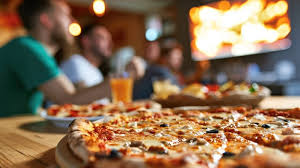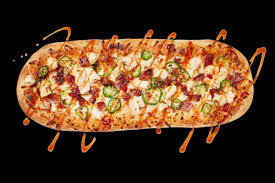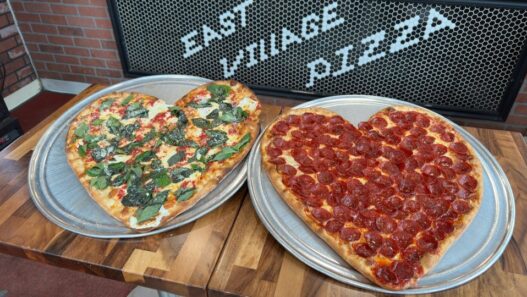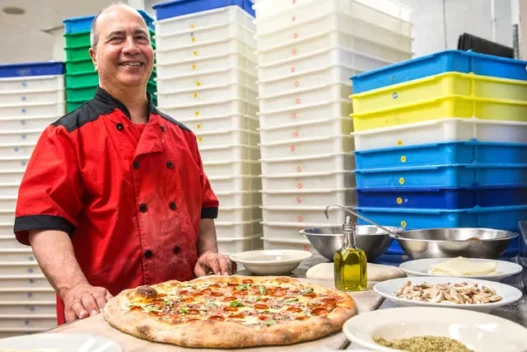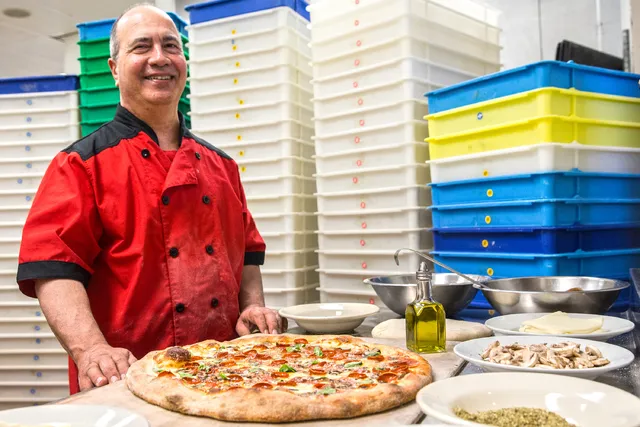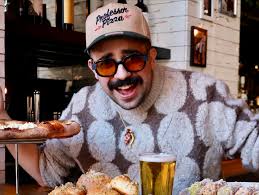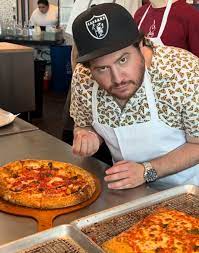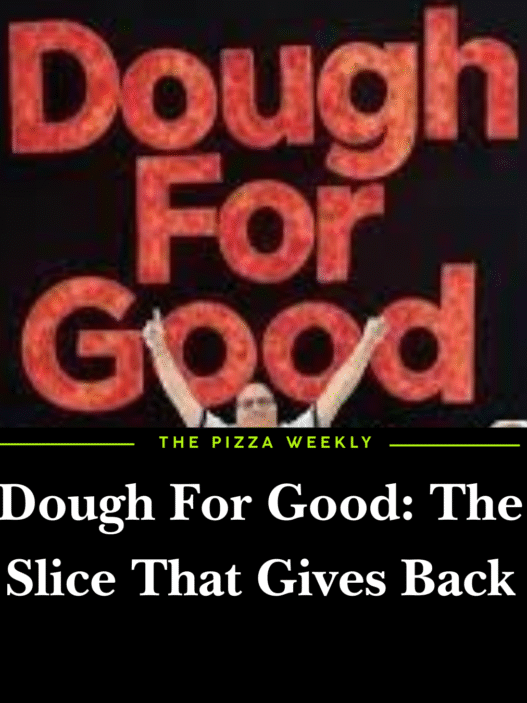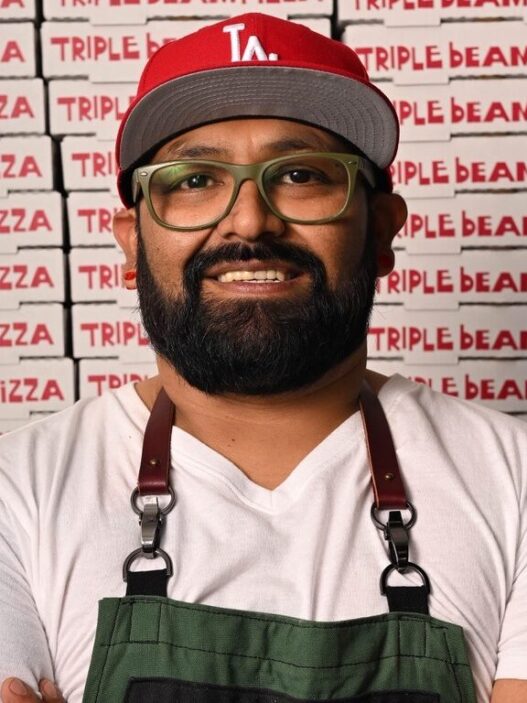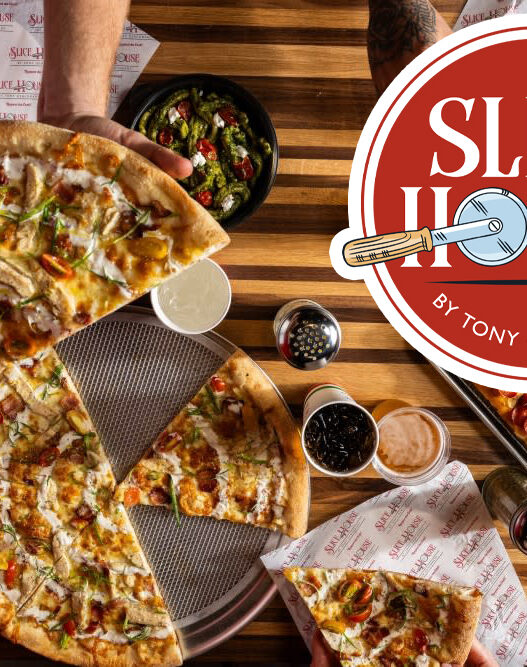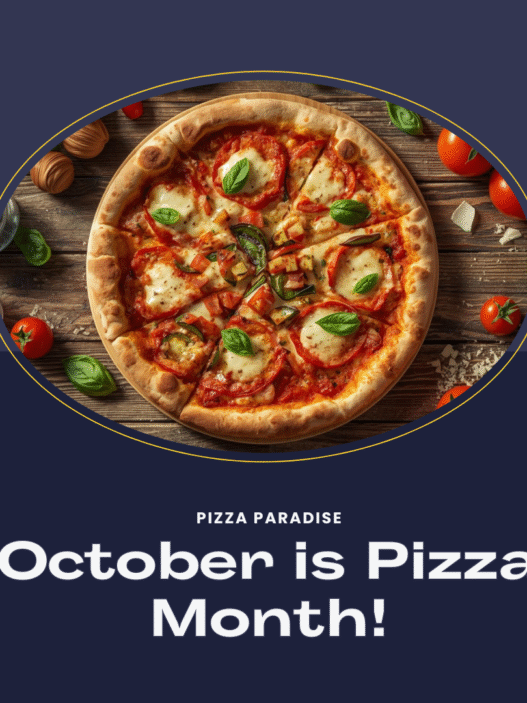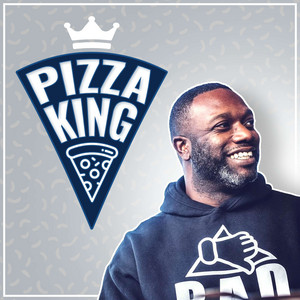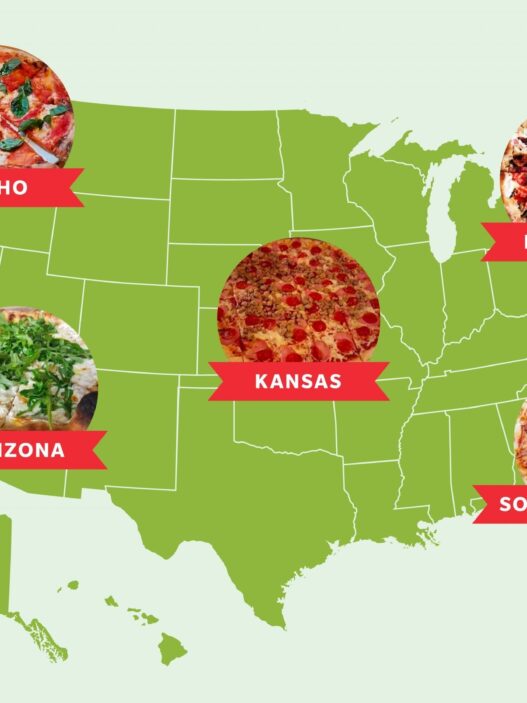Las Vegas may be known for its neon excess, but in the world of pizza, it has also become a pilgrimage site—and much of that credit belongs to John Arena. To aficionados, Arena is far more than just a pizzaiolo; he’s been called the “philosopher of pizza,” a teacher-mentor whose influence has shaped generations of pie makers. His two landmark restaurants, Metro Pizza and Truly Pizza, have achieved cult status, attracting flavors and techniques from across the globe while never losing sight of their communal roots.
Arena’s voice carries particular weight at this moment. With America’s pizza culture exploding into new experiments—from five-day fermented Sicilians to hyperlocal flour obsessions—he stands as a reminder that pizza is not just food, but philosophy. He also speaks candidly about living and working with Parkinson’s, finding in dough and fire not just craft, but resilience. In his words, pizza is not only the world’s most communal food, but a mirror of who we are.
In this extended conversation, Arena opens up about life lessons, mentoring, the myths of water ratios, alien visitations, and the eternal tension between pride and humility. True to his ethos, he offers not a brand pitch or a gimmick, but a deeply human reminder: the pizza is never just the pizza.
Below is the full Q&A, presented in his own words.
- John, you’ve been nicknamed the “philosopher of pizza.” What’s the single biggest life lesson pizza has taught you?
Perhaps the most compelling thing a lifetime in front of the ovens has taught me is that virtually any endeavor can be a medium of self expression or a mere commodity depending on how serious and committed you are. For some folks pizza is an honored craft that teaches the practitioner about their place in the world and informs the world about the values and life experiences of the person who made each pizza. For others pizza is simply a convenience, created and consumed with little thought or appreciation. The choice of which kind of pizza maker you wish to become says volumes about who you are. - Your Truly Pizza was just ranked among the best in the U.S. What do you think makes it truly stand apart in a country obsessed with pizza?
Let me first be clear that while we appreciate being included in well-researched lists—especially when they highlight pizza makers we admire—we never focus on getting named on any list. We use inclusion as added motivation to live up to the expectations of our guests and honor the many great pizza makers who inspire us. Truly Pizza shines because it is a unique example of what can happen when a group of talented professionals come together selflessly with the shared goal of honoring their craft without any compromise. We were fortunate that our founding partner/investor Donna Baldwin was willing to provide the resources we needed to build and sustain this ongoing project unflinchingly. From the very beginning Chris Decker, Michael Vakneen, Donna and I made up our minds that no matter how good any aspect of the experience was, it can and must always be in a state of evolutionary improvement. A mindset like that is not for the timid. - You’ve mentored countless pizza makers. What’s the #1 mistake new pizzeria owners make—and how can they avoid it?
The biggest miscalculation is underestimating the physical, financial and emotional commitment it takes to succeed. Many aspiring pizza makers are unprepared for the daily routines and constant improvisations and pivots that occur in a restaurant. Cooking at home or at a weekly pop-up is only a hint of what day-to-day operations require. Many amateurs visit commercial pizzerias and come away thinking they can do better. Work for six months in a busy pizzeria making 400+ pizzas per day every day before passing judgment or committing your life savings. - Your Sicilian pizzas are legendary. If you could only bake one pizza style for the rest of your life, which would it be and why?
That five-day-rise Sicilian has become quite well known—so much so that the method and term “five-day rise” is now common. Few modern-day pizza makers realize that when Chris Decker and I started developing it over 20 years ago it was anything but normal or accepted. It’s my favorite for several reasons. First, it represents the moment when Chris emerged as my true collaborator and not just a student—the point where it became clear he would surpass me, which is the hope of any decent teacher. Second, the Sicilian is gratifying because, despite its simplicity, it requires extreme patience and attention to detail. We teach people freely, but very few stick with it. Last, on the rare occasion everything comes together, the look of surprise and satisfaction on a guest’s face is priceless. Isn’t that what we all live for? - You often say pizza is “the world’s most communal food.” What’s the most powerful moment of community you’ve ever witnessed around a pizza?
The real moment of realization for me was September 11, 2001. Shortly after the towers fell, our friends in the pizza community began feeding people across the country—at blood drives, recovery sites, fundraisers and in our pizzerias—with a sense of unity that seems impossible today. Our pizzerias were packed with families seeking to be together in a familiar, comforting environment. Pizza is there for you in the best and worst of times. It reminded me of our obligation to use pizza in service to our community. We should remember we are never more important than pizza itself. - You’ve been open about your Parkinson’s journey. How has pizza-making itself helped you fight back and keep moving?
I was blessed with a high degree of optimism. I feel it is my responsibility to be an example of what is possible in the face of challenges. Pizza prepares you to take the most basic things—including less-than-perfect circumstances—and turn them into something beautiful that can be a gift to others. - If you could design a “pizza therapy” class for everyone—not just people with Parkinson’s—what would the first lesson be?
The first lesson would be how to taste and experience pizza with all of your senses: to see pizza with an unbiased mind, unencumbered by past experiences or expectations, aware that every moment and every pizza is precious and will never happen again. - You’ve worked with so many ovens—from wood-fired Forno Bravo to massive commercial decks. If you had to recommend one oven for a serious home pizza maker, what would it be?
That’s impossible without knowing the maker’s goals. Too many get hung up on tools in vogue rather than purpose. Most home bakers could spend years exploring a baking steel before needing an expensive oven. When ready, I suggest an American-made outdoor oven like Forno Bravo or Mara Forni—only if you’ll use it often for more than pizza. Otherwise, a countertop Breville or similar. - Best supplier shout-out: what’s one ingredient brand you trust so much you’d bet a world-championship pizza on it?
In America: Stanislaus Alta Cucina or Bianco DiNapoli Rustic Crush tomatoes; Central Milling or Tony G high-protein 00 flour. In Italy: Ciao Whole Peeled tomatoes and Caputo flours for their variety and quality. - If Metro Pizza were a song, what genre would it be—and if Truly Pizza were a song, what genre would it be?
Metro Pizza: Bruce Springsteen’s No Surrender—rebellious, adventurous, maturing without losing spirit.
Truly Pizza: George Ezra’s Budapest—a defiant call to embrace change at 70 with Parkinson’s and chase something special. - When pizza fans come to Vegas, many chase the “slice tour.” What’s one off-the-radar pizzeria gem you always recommend?
Ye Lucino’s, run by a Philly family—solid classics, creative specials, and an absolutely killer cheesesteak. - You’ve collaborated with pizza legends like Tony Gemignani & Chris Bianco. What’s one thing you’ve learned from them that changed how you make pizza?
Chris Bianco changed how chefs view pizza; his James Beard award was pivotal. Tony Gemignani includes me out of pure kindness. Watching Tony, Giulio Adriani, and Jonathan Goldsmith taught me the greats never compromise—if something makes the pizza even a little better, you do it, no matter the sacrifice. - What’s the weirdest topping combo that actually surprised you and worked beautifully?
Tuna fish and banana at Capers in Belfast (1987 employee exchange). Sweet fruit balances salty tuna—evaluate intention, not weirdness. - Your UNLV pizza course was groundbreaking. Do you think the next generation of pizza makers will need more culinary skills or more business skills to survive?
Yes! - You’ve been in the game for decades. Which pizza trend do you secretly love, and which one drives you crazy?
Love: diversity enriching the landscape. Hate: the “water flex”—bragging about hydration instead of using only what’s needed. - If aliens landed tomorrow and asked you to represent Earth with one pizza, what pie are you making them?
I’m not making it—I’m bringing them straight to Chris Decker and Michael Vakneen to show what we accomplished together. - You’ve said sometimes the pizza “teaches you”—what was the last lesson dough taught you?
Dough taught me there are many roads to the same destination, but the goal is to face yourself; despite setbacks, it’s all going to be okay. - Truly Pizza exploded in popularity. Was there a moment you realized: okay, this place is going to be legendary?
Yes—long before we opened, the first time we hit a breakthrough dough result. We nodded, agreed it wasn’t good enough, and still feel that every day. That drive is what brought us here and is nowhere near what we want to become. - You’ve been called an “ordinary pizza guy,” but to the industry you’re an icon. Do you think part of your secret is staying humble—and how do you balance that with being a legend?
How can I be anything but humble when I’ve been surrounded by people far more accomplished? I’m like a roadie for the Beatles. My obligation is to use my voice to tell the world how great it is to be an ordinary pizza guy. - Finally—the burning question every pizza nerd wants to know: will you share your Sicilian dough recipe with us today, or are we going to have to beg?
I will send that along in a separate attachment.
John Arena’s reflections illuminate a quiet truth: pizza is never simply about cheese and dough. For him, it is a vessel for community, a school of discipline, and in times of both tragedy and celebration, a symbol of resilience. From memories of 9/11, when pizzerias became sanctuaries of unity, to his insistence on teaching patience through a five-day rise, Arena reminds us that food, at its best, transcends the plate it becomes a story, a gesture, a philosophy.
As pizza culture continues to evolve be it through artisan flour, hybrid ovens, or unlikely toppings Arena’s voice steadies the conversation, grounding it in humility and purpose. He does not measure success by lists, awards, or trends, but by the faces of guests who discover joy in a slice, by the apprentices who surpass their teachers, and by the enduring reminder that no pizzaiolo is ever greater than the pizza itself.
In a world quick to commodify everything, John Arena insists on reverence. His guiding lesson may be the simplest—and the hardest: whatever you build, whether in a kitchen or in life, treat it as more than just a product. Let it be a reflection of who you are, and a gift to others.






